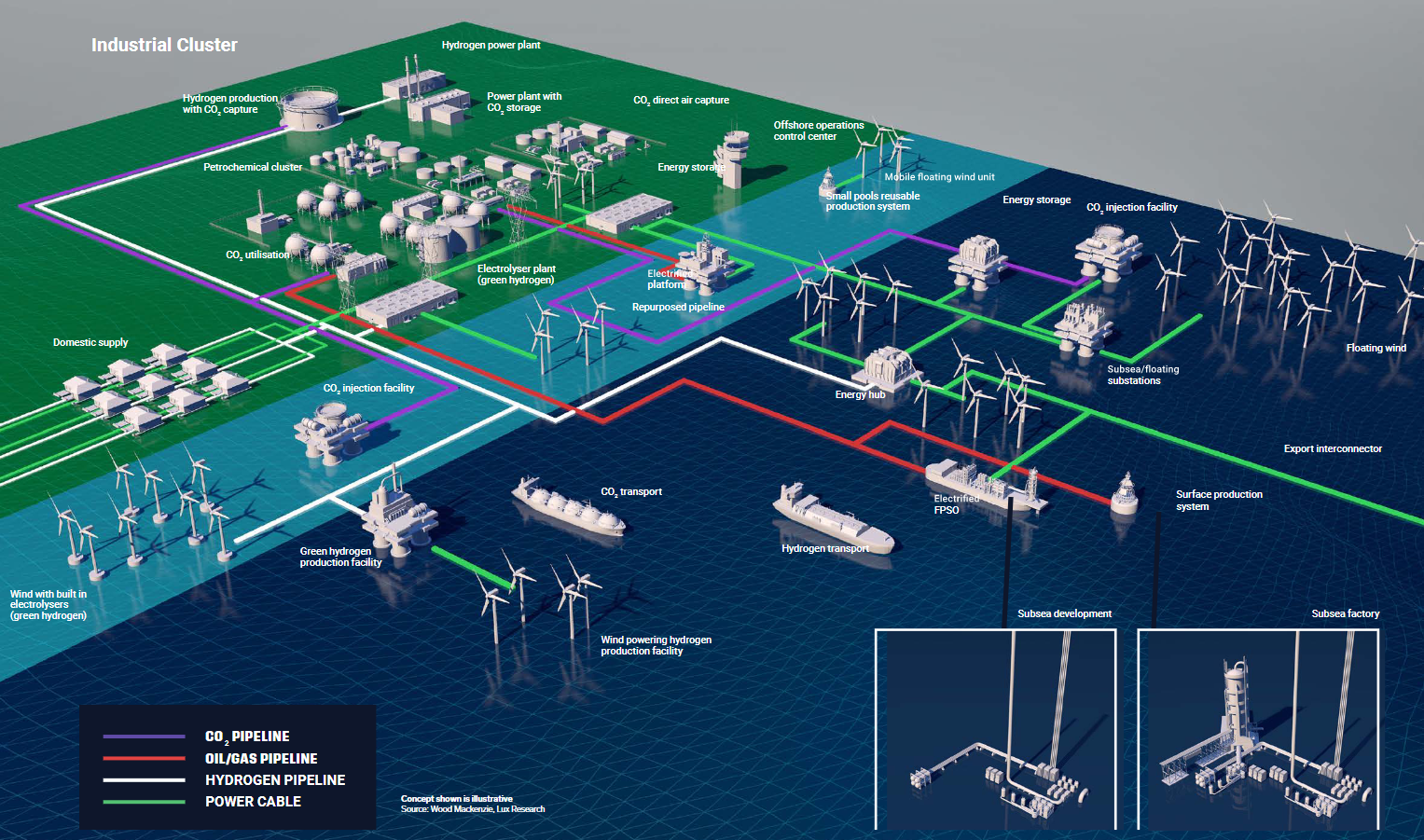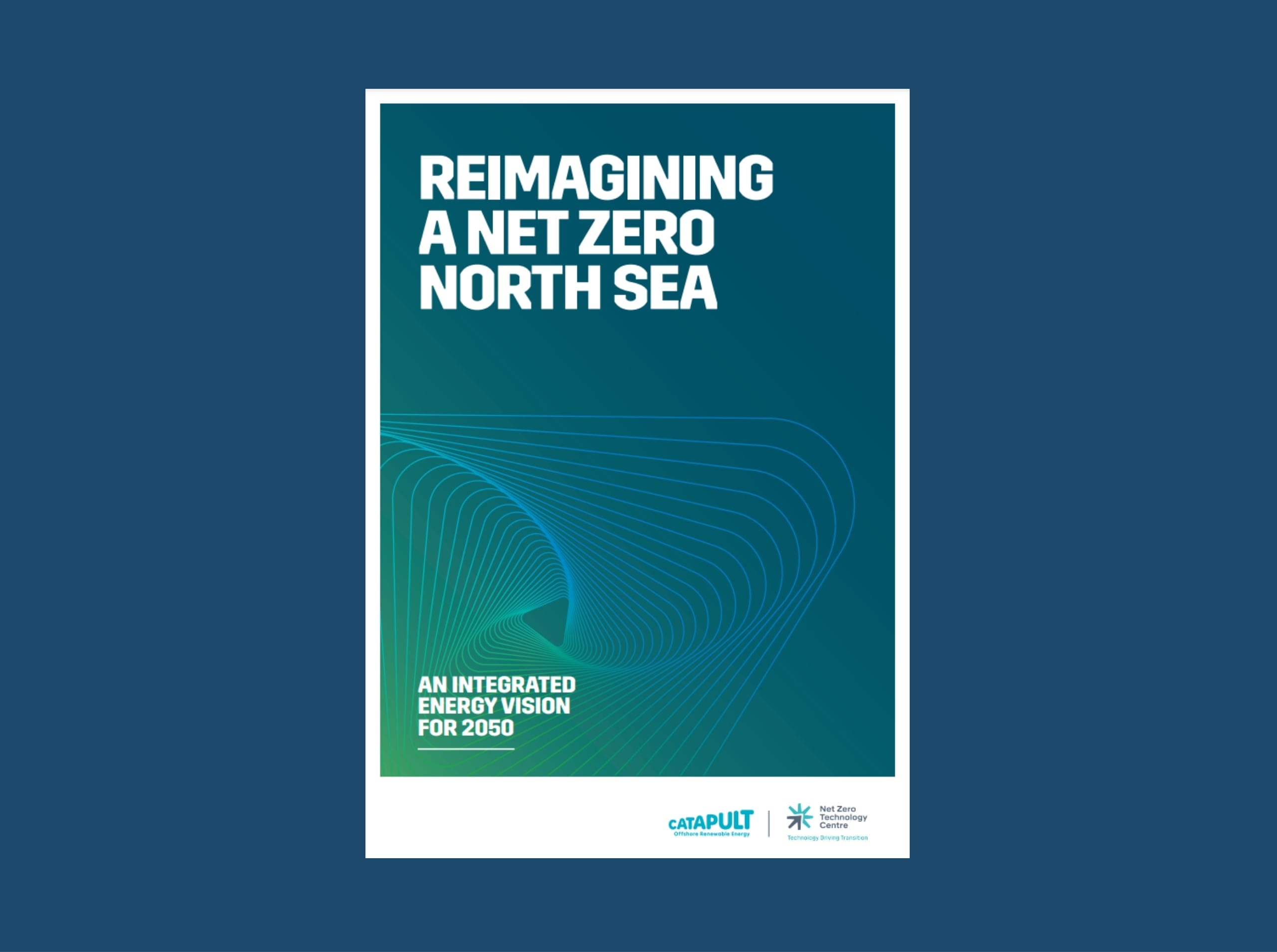
Integrated Energy Vison – an economic opportunity for the UK
Project Summary
The UK offshore energy sector has reached a pivotal moment, a watershed in our industrial history. We are at a threshold when the experience and expertise forged over the last 50 years must be used in partnership with transformational low-carbon technologies to meet the challenges – and grasp the opportunities – presented by the UK’s commitment to net zero.
Cross sector collaboration will be key to unlocking an integrated offshore energy sector, driving efficiencies and deploying innovative next generation technologies to enable an affordable energy transition.
Project overview:
In collaboration with Offshore Renewable Energy Catapult, we set out the direction for a UK net zero offshore energy system through the delivery of the ‘Reimagining a Net Zero North Sea: an integrated energy vision for 2050’ report. The scope of this report was to provide an integrated North Sea vision based on varying degrees of offshore renewables, hydrogen and other energy sources – highlighting the anticipated economic and jobs impact of each scenario.
The report outlines three scenarios designed to create a zero carbon North Sea energy system – Emerging, Progressive and Transformational.
In the Emerging scenario, renewable energy plays an increasing role, with gas still a significant contributor to the offshore energy mix and a significant requirement for carbon capture and storage (CCS).
In Progressive, an increased share of offshore renewables dominates the electricity market alongside a blue/green hydrogen mix, with a major role for CCS.
Transformational outlines an energy system which is driven by offshore wind and green hydrogen, with oil and gas demand matched by clean domestic supply.
Key results:
Delivering a tech-enabled integrated net-zero energy future will cost £430 billion but generate more than £2.5 trillion in value to the UK economy. The North Sea energy sector believes investing in large-scale technology advances and adoption will be fundamental to meeting net zero ambitions, while simultaneously addressing affordability through potential CAPEX savings of £154bn by 2050.
Of particular importance will be support for innovation for the existing contributors – hydrocarbons, wind, hydrogen, CCS – that are critical to the delivery of affordable energy, and the acceptance that multiple solutions will be required to meet net zero ambitions.
The execution must be based on expanded UK capabilities in areas including engineering, manufacturing and installation, development of innovation and associated intellectual property, and optimised supply chains, skills and infrastructure.
Investment by the offshore energy industries, supported by government, can help maximise the potential of achieving significant domestic content provision in the face of increasing levels of competition from both North Sea neighbours and beyond.
Industry value:
The report indicated that implementing an integrated energy system could contribute £2.5 trillion to the UK economy.
Investing in technology innovation can deliver potential CAPEX savings of £154bn by 2050.
Download the full report here
Let's work together
"Required" indicates required fields


